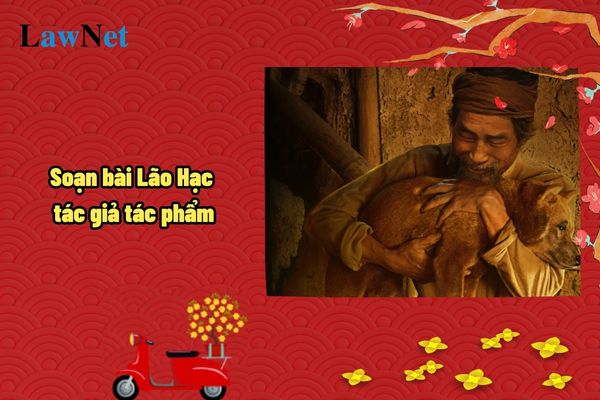What are the guidelines for preparing the lesson "Lão Hạc" regarding author and work? What are the literary competencies required for 8th-grade students in Vietnam?
What are the guidelines for preparing the lesson "Lão Hạc" regarding author and work?
Students should refer to the following sample lesson "Lão Hạc" regarding author and work:
|
Guidelines for preparing the lesson "Lão Hạc" regarding author and work
|
*Note: The information is for reference purposes only./.

What are the guidelines for preparing the lesson "Lão Hạc" regarding author and work? What are the literary competencies required for 8th-grade students in Vietnam? (Image from the Internet)
What are the literary competencies required for 8th-grade students in Vietnam?
Under Section IV of the General Education Program in Literature issued in conjunction with Circular 32/2018/TT-BGDDT, literary competencies required for 8th-grade students in Vietnam include:
- Recognize and distinguish types of literary texts: stories, poems, plays, essays, and some typical genres for each; analyze the effects of some artistic formal elements within each literary genre; understand both explicit and implicit content of literary texts.
- Present feelings and thoughts about a literary work and its impact on oneself; initially create some literary products.
- Understand the messages, ideas, emotions, and attitudes of the author in the text; recognize literary scripts, novels, and Nôm poetry, rhythmic and free verse poetry, tragedy, and comedy; the content and form of literary works, literary imagery;
- Identify and analyze the effects of some formal elements and artistic techniques specific to each literary genre (the combination of narrator and character dialogue, perspective, conflict, poetic rules, structure, vocabulary, emotional flow; rhetorical devices such as repetition, wordplay, sarcasm, paradox). Recognize general features of Vietnamese literary history; understand the impact of literature on personal life.
What are the elective subjects of 8th-grade students in Vietnam?
According to Section 1 Part 4 of the general education program issued with Circular 32/2018/TT-BGDDT, the regulations are as follows:
1. Basic Education Stage
...
1.2. Lower secondary level
a) Educational Content
Compulsory subjects and educational activities: Vietnamese Language; Mathematics; Foreign Language 1; Civic Education; History and Geography; Natural Sciences; Technology; Informatics; Physical Education; Arts (Music, Fine Arts); Experiential Activities, Career Orientation; Local Educational Content.
Elective subjects: Ethnic Minority Language, Foreign Language 2.
b) Education Duration
Classes per day, not exceeding 5 lessons per session; each period is 45 minutes. Schools meeting the conditions are encouraged to implement full-day schooling as per the guidance of the Ministry of Education and Training.
...
The elective subjects of 8th-grade students (13-year-old students) include 02 subjects: Ethnic Minority Language and Foreign Language 2.
>> See the Appendix issued with Circular 32/2018/TT-BGDDT: Download (Note: Some contents in this file are amended by Article 1, Article 2 Circular 13/2022/TT-BGDDT)
What are the 06 rights of 8th-grade students in Vietnam at school?
According to Article 35 of the Charter of Lower Secondary Schools, Upper Secondary Schools, and Multi-level Schools issued by the Ministry of Education and Training along with Circular 32/2020/TT-BGDDT, 8th-grade students have some rights as follows:
1. Receive comprehensive education with fairness, be provided with time, facilities, hygiene and safety to learn in class and self-learn at home, be informed of their education and training, and be able to use learning, cultural and sport equipment of their schools as per the law.
2. Receive respect, protection and fair and democratic treatment, complain to their schools and education authorities about decisions concerning themselves; transfer school with legitimate reason as per existing regulations; enter school before the compulsory starting age, skip a grade and study at an age higher than the compulsory attendance age according to regulations in Article 33 of Circular 32/2020/TT-BGDDT.
3. Participate in activities for development of their gifts in academic subjects, sports and art organized by their schools if able to.
4. Students eligible for social benefits, disadvantaged students and gifted students may receive sponsorship or other benefits as per the law.
5. Transfer school if eligible according to regulations following school transfer procedures stipulated by the Minister of Education and Training.
6. Enjoy other rights as per the law.

